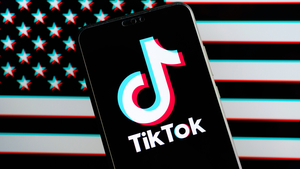Some of the concessions TikTok offered the American government in a bid to avoid the app being banned in the US have been revealed in a new Washington Post report. Those concessions were all rejected by President Joe Biden and his team in favour of supporting the sell-or-be-banned law that was passed by US Congress earlier this year, and which TikTok is now challenging in the courts.
TikTok bosses have been involved in long-running negotiations with US government officials. The discussions began when former President Donald Trump tried to ban TikTok in 2020 over concerns that the Chinese government has access to user-data via the app’s China-based parent company ByteDance. As the political pressure ramped up earlier this year, TikTok was keen to talk up those efforts, organised under the banner Project Texas. And that work will certainly play a crucial role in TikTok’s legal arguments in the months ahead.
According to the Post, TikTok and ByteDance offered to allow federal officials to pick the board of directors at its US operation and have veto power over each new hire. It would also pay an American company with links to the Defense Department to monitor its source code. And “it even offered”, the article says, “to give federal officials a kill switch that would shut the app down in the United States if they felt it remained a threat”.
TikTok denies that there are any data security issues on its platform. However, even if there are, it argues in its lawsuit seeking to block the sell-or-be-banned law, Congress and the White House should have first implemented narrower data security measures to deal with their concerns before opting for an outright ban. After all, blocking the use of TikTok in the US breaches free speech protections in the First Amendment of the US Constitution, it reckons.
The lawsuit outlines other aspects of Project Texas, before stating, “Congress tossed this tailored agreement aside, in favour of the politically expedient and punitive approach of targeting” TikTok and its parent company.
Alluding to the fact that data protection on all social media platforms has been a political concern in recent years, it adds, “Congress provided every other company - however serious a threat to national security it might pose - paths to avoiding a ban, excluding only TikTok Inc and ByteDance Ltd”.
The Post speaks to Anupam Chander - a law professor at Georgetown University - about the extent to which the government properly considered narrower data security measures. “The government essentially threw up its hands at the possibility of any kind of regulation or cybersecurity measure”, he says.
“TikTok proposed this incredible array of protections, but none of it mattered. In the government’s thinking, it wasn’t: ‘Can this app be protected?’ It was: ‘There’s a Chinese owner’. That became the death knell. The government had a complete absence of faith in [its] ability to regulate technology platforms, because there might be some vulnerability that might exist somewhere down the line”.
Responding to The Post's report, an official in the Biden administration insists that the measures proposed as part of Project Texas were properly considered. However, he adds, they were simply insufficient to address the data security concerns and therefore the approach taken by Congress - forcing a sale or implementing a ban - was the only option left.
The White House, the official says, “determined more than a year ago that the solution proposed by the parties at the time would be insufficient to address the serious national security risks presented. While we have consistently engaged with the company about our concerns and potential solutions, it became clear that divestment from its foreign ownership was and remains necessary”.
The court hearing TikTok’s lawsuit this week agreed to a speedy timeline for the case meaning oral arguments will begin in September, with written briefings being submitted over the summer. As the case progresses we are likely to get even more detail about what Project Texas involved, and more scrutiny over the extent to which the US government properly considered TikTok's proposals before deciding they were insufficient.

